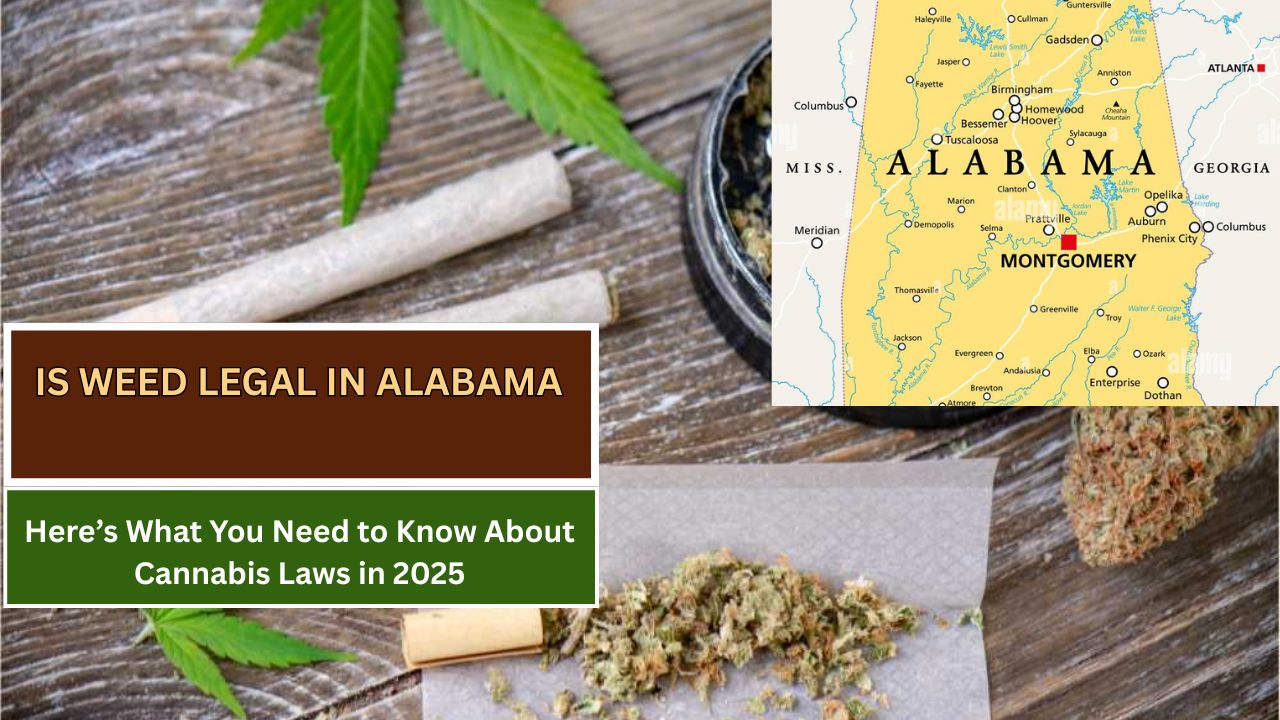As of 2025, marijuana remains illegal for recreational use in the state of Alabama, although medical cannabis has technically been legalized. Despite legislative progress, patients are still waiting for access due to delays in implementing the medical cannabis program. Meanwhile, Alabama has introduced new restrictions on hemp-derived THC products, further shaping the cannabis landscape.
Recreational Use: Still Illegal and Punishable
Alabama has not legalized marijuana for recreational use. Possession of any amount is considered a crime under state law. According to the Alabama Code, first-time possession is classified as a Class A misdemeanor, which carries a penalty of:
- Up to 1 year in jail
- Fines up to $6,000
- A mandatory six-month driver’s license suspension
Repeat offenses or possession with intent to distribute can result in Class C felony charges, which include even more severe penalties, including extended imprisonment.
Alabama is also one of the few states that still adheres to a strict “Smoke a joint, lose your license” policy, enforcing automatic license suspension for any drug offense—whether or not it involves driving.
Medical Marijuana: Legal on Paper, Delayed in Practice
Medical cannabis was legalized in Alabama in 2021 through the Darren Wesley ‘Ato’ Hall Compassion Act. The law allows qualified patients with conditions such as epilepsy, PTSD, cancer-related pain, and chronic conditions to access medical marijuana under the supervision of licensed physicians.
However, as of May 2025, the program remains non-operational due to ongoing legal disputes over licensing procedures for dispensaries and cultivators. A March 2025 court ruling finally allowed the Alabama Medical Cannabis Commission (AMCC) to resume licensing activities after a prolonged legal battle.
Under the law, medical cannabis products are limited to:
- Tablets
- Tinctures
- Patches
- Oils
- Gummies (peach flavor only)
Smokable forms of cannabis and raw plant material remain prohibited under state law.
Hemp and THC Products: Now More Heavily Regulated
In May 2025, Governor Kay Ivey signed legislation introducing strict regulations for hemp-derived THC products like Delta-8 and Delta-10.
Key provisions of the law include:
- THC in hemp edibles is limited to 10 mg per serving
- Sales restricted to adults 21 and older
- Ban on smokable and vapeable hemp products
- Mandatory retailer licensing via the Alabama Alcoholic Beverage Control (ABC) Board
Retailers caught selling non-compliant products or to underage buyers face penalties, including fines and possible license revocation.
Public Reaction and Industry Impact
The state’s cautious approach has drawn both praise and criticism. Supporters of cannabis reform argue that patients in need continue to suffer due to delays in launching the medical program. Industry professionals have also expressed frustration over the regulatory gridlock and the slow rollout of licenses.
Meanwhile, conservative lawmakers and advocacy groups support the restrictions, pointing to concerns over public health, youth access, and the psychoactive effects of unregulated THC products.
Where Does Alabama Go From Here?
As neighboring states like Mississippi and Florida expand medical or recreational cannabis access, Alabama continues to tread carefully. The next few months will be critical as the Alabama Medical Cannabis Commission works to issue licenses and begin operations.
Until then, recreational marijuana remains illegal, and access to medical marijuana is still out of reach, despite being legalized nearly four years ago.
For the most accurate updates, check with:
This article has been carefully fact-checked by our editorial team to ensure accuracy and eliminate any misleading information. We are committed to maintaining the highest standards of integrity in our content.

Outside of work, he enjoys playing chess, following cricket, and writing short stories. His commitment to integrity and in-depth analysis strengthens OTE News’ mission of providing trustworthy journalism.




